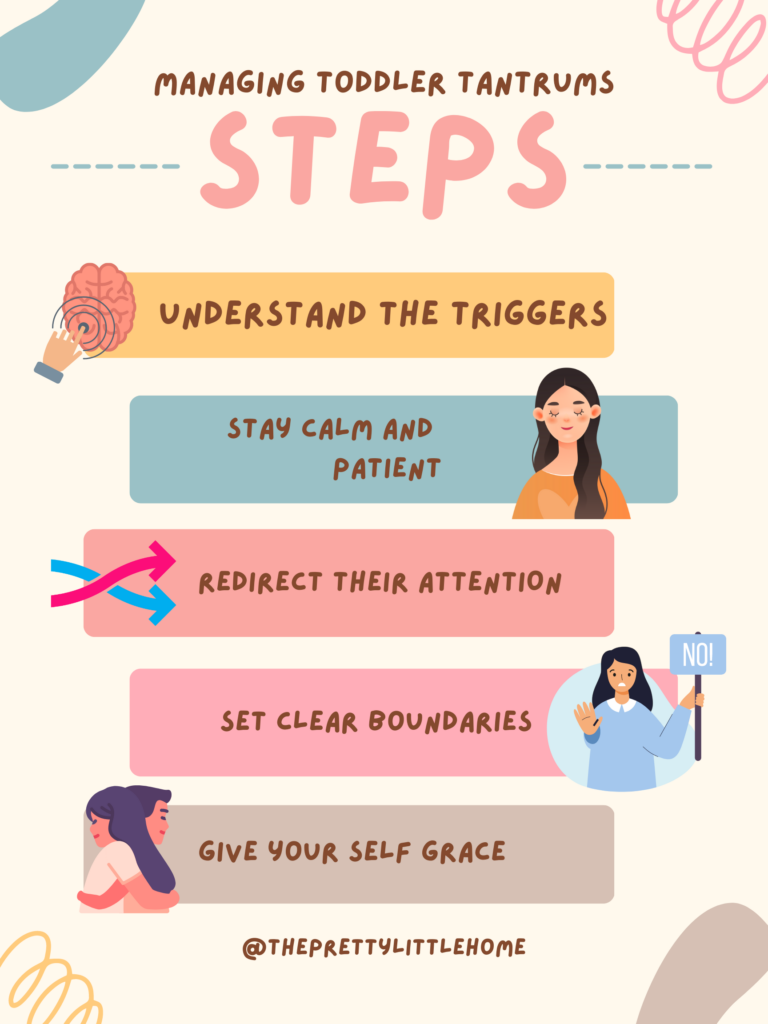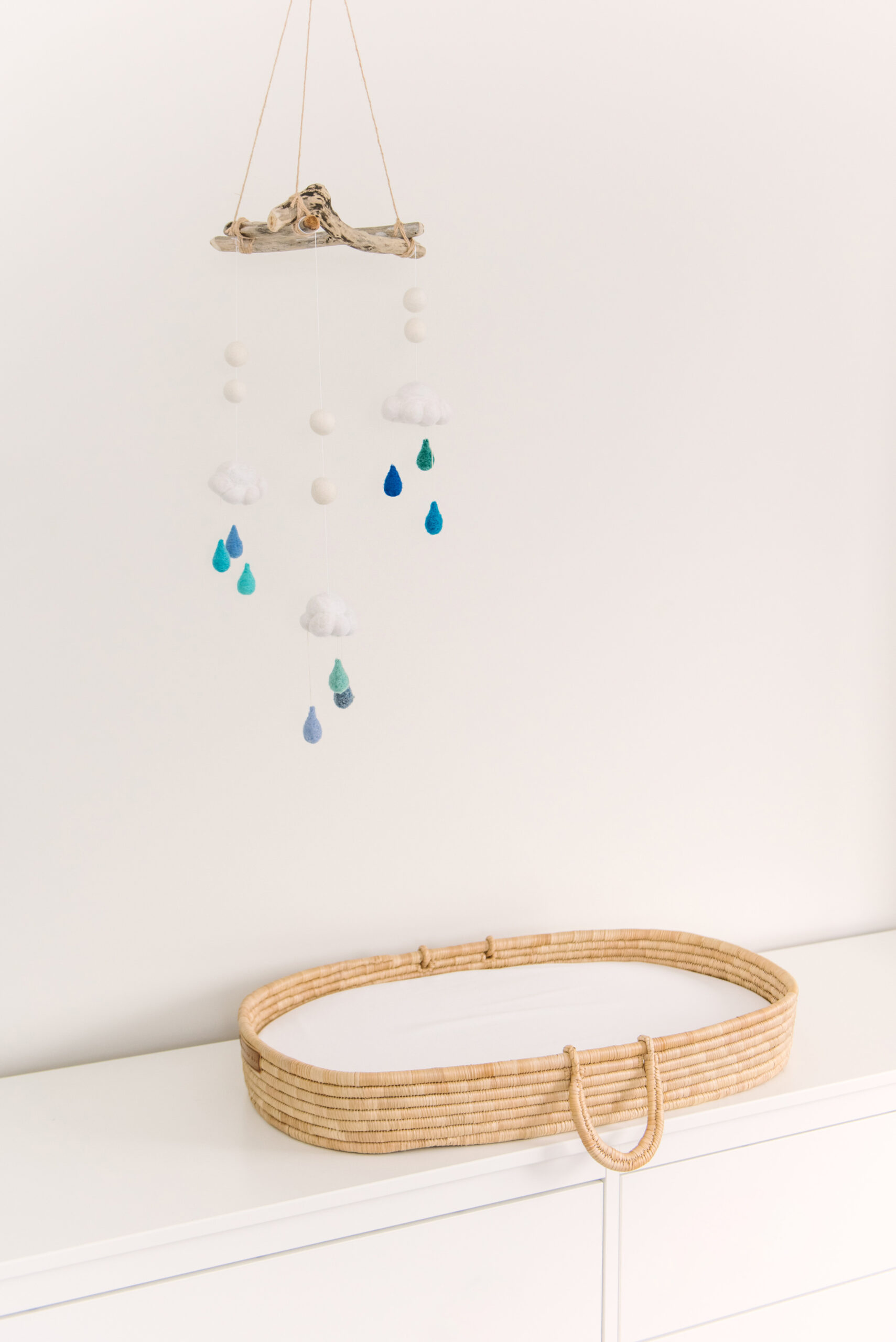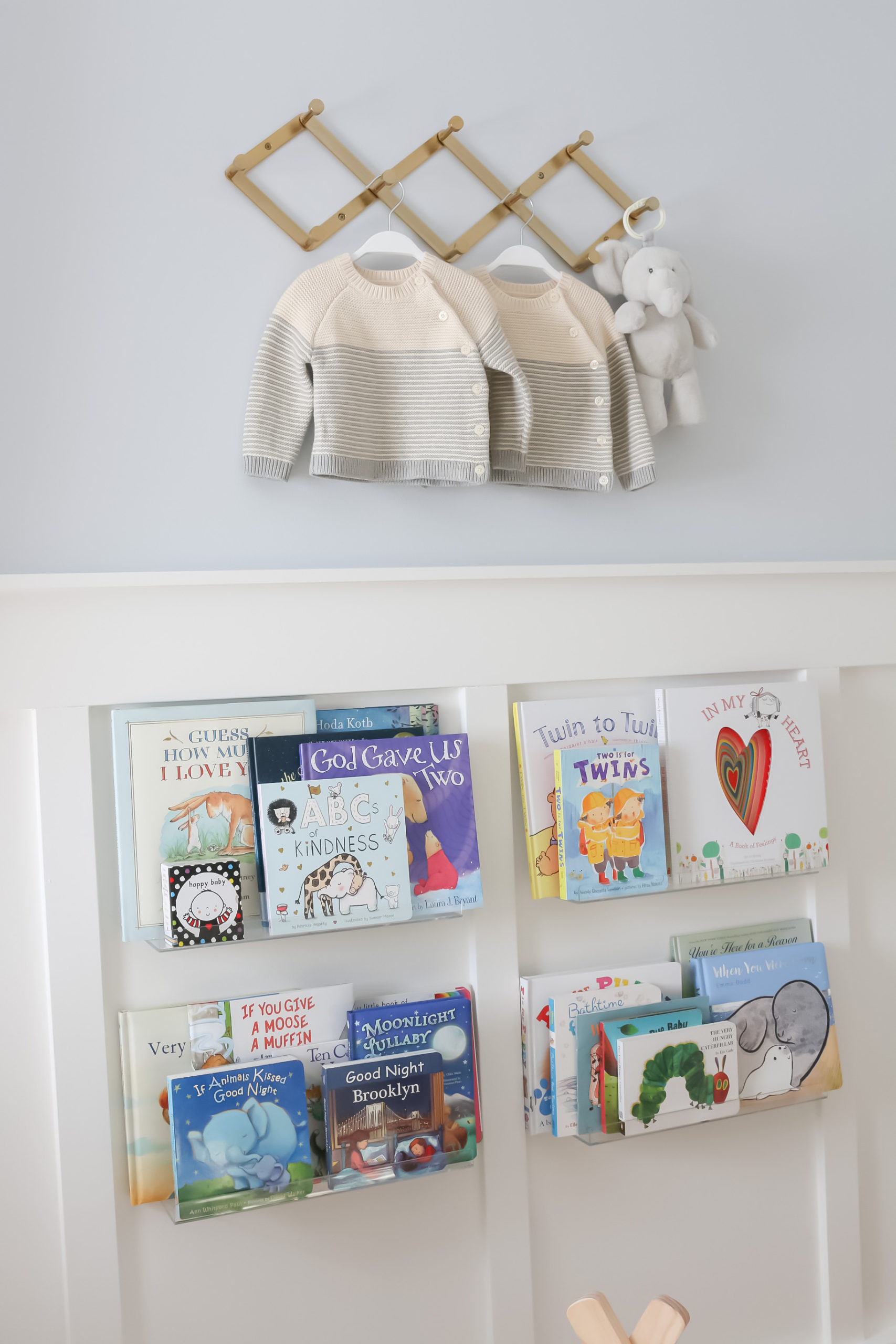As any parent knows, toddler tantrums can be a challenging and exhausting experience. Add twins to the mix and you got yourself one big party!!! The sudden outbursts of crying, screaming, and flailing can leave you feeling helpless and frustrated. You know exactly what I am talking about! But what if there was a secret to stopping these tantrums in their tracks? Fortunately, there are several simple tactics you can use to prevent tantrums from escalating and enjoy a more peaceful parenting experience. In this article, we’ll explore the triggers behind toddler tantrums, how to stay calm and patient during outbursts, the power of redirecting attention, the importance of setting clear boundaries and my favorite way of minimizing tantrums. By the end of this article, you’ll have a road map for stopping toddler tantrums before they even start.

Toddler Tantrums: Understand the Triggers
One key to stopping toddler tantrums in their tracks is staying calm and patient during the outburst. Trust me, I know from experience how difficult it may be to remain composed when your child is crying and screaming, but reacting with anger or frustration will only escalate the situation. Instead, take a deep breath and remind yourself that tantrums are a normal part of toddler development. By staying calm and patient, you can model healthy emotional regulation for your child and help them learn to manage their own emotions. Remember, tantrums are very normal for toddler and are considered developmentally healthy.
Parent Tip: Stay Calm and Patient
So how can you stay calm and patient during a tantrum? Start by reminding yourself that your child’s behavior is not a reflection of your parenting skills. Tantrums are a natural part of growing up, and your child is still learning how to express their emotions in a healthy way. Try to tune out any judgmental looks or comments from others and focus on your child’s needs. Trust me, this isn’t easy because sometimes we try to do anything to try to get out child to calm down but try to just focus on your child!
Another helpful strategy is to practice mindfulness. When you feel yourself getting frustrated or overwhelmed, take a moment to pause and notice your thoughts and feelings. Acknowledge them without judgment and let them pass. This can help you stay centered and present, even during a stressful situation. Sometimes when I feel completely overwhelmed, I literally give my husband a look and he know I need a minute to come back to myself and to calm down. I go into a different room for a minute, breathe in, breathe out and go back to parenting. Trust me, it makes a huge difference.
Remember, staying calm and patient during a tantrum is a skill that takes practice. Be gentle with yourself and don’t be afraid to ask for help or support when you need it.

Toddler Tantrums: Redirect Their Attention
One way to deal with a toddler’s tantrum is to redirect their attention. When your child is throwing a fit, it can be challenging to get them to calm down. However, distracting them with an activity or object they enjoy can be an effective way to redirect their focus and stop the tantrum in its tracks.
For instance, you could offer your child a snack or a toy that they enjoy. You could also suggest doing an activity together, such as reading a book or playing a game. Engaging your child in an activity they enjoy can help shift their focus away from what triggered the tantrum.
Redirecting your child’s attention can be especially effective if they’re throwing a tantrum because they’re bored or frustrated. By offering them something fun or engaging, you can help them feel more comfortable and relaxed.
One thing I personally like to do is to give them a choice. The choice has to be something that is age appropriate. So if they are in the middle of a tantrum I would say very calmly (in most cases, honestly your patience is really tested when you become a mom): “I see you are angry because your brother took your toy, right now it’s his turn to play with that toy. Do you want to go play with your legos or your cars?”
Asking them a question and giving them an age appropriate option will get them to feeling like they are more independent and in most cases causes the tantrum to be way shorter in duration.
Remember, redirecting your child’s attention is just one strategy for dealing with tantrums.
Toddler Tantrums: Set Clear Boundaries
Another effective technique for preventing tantrums is setting clear boundaries. Toddlers often have limited control over their environments, and they can become overwhelmed or frustrated when they don’t know what to expect. By establishing consistent routines and rules, you can help your child feel more secure and in control.
Start by clearly communicating your expectations to your child. Use simple language that they can understand, and be specific about what behaviors are and are not acceptable. For example, you might say, “We don’t hit or kick when we’re angry. If you feel upset, you can use your words to tell me how you’re feeling.”
Consistency is key when it comes to setting boundaries. Make sure that everyone who cares for your child understands the rules and follows them consistently. This includes grandparents, babysitters, and other caregivers.
It’s also important to be patient and understanding when your child tests the boundaries. Toddlers are still learning, and they will make mistakes. When your child does misbehave, calmly remind them of the rules and redirect them to a more appropriate activity.
By setting clear boundaries and being consistent with your expectations, you can help prevent tantrums from happening and create a more peaceful home environment.

Children and Toddler Tantrums: My Personal Favorite Approach
One way to de-escalate toddler tantrums is to narrate what is happening or will happen in the near future (not at dinner, we are talking literally in the next 5 minutes). Children thrive on routine and predictability. They love feeling secure and know what is coming next in their day. Lets just say toddlers hate surprises.
So image you are sitting on the couch watching Vanderpump Rules (have you been following the drama?! that’s beside the point), so a juicy scene is about to come on you are zoned in. Your spouse comes and turns off the TV out of nowhere!! You are probably thinking like what?! why would you do that?! Hey, you may even get a little angry!
Now imagine the same scenario but instead your spouse now says “Iryna, it’s time to go to bed, I am going to turn the the TV off now”. You may say okay, just one minute, I want to see this scene but I bet your reaction will be completely different then the first one.
Same applies with our kids! They LOVE to know what is happening next so they don’t get caught off guard. I do this all the time with my twins. Nap time, going outside, when it’s time to eat, leaving the park, going home, I mean anything you can think of. I narrate everything that is going to happen to help minimize tantrums and meltdowns.
My favorite book for understanding the toddler developing brain
If there’s one book I would recommend reading it’s this one! The wealth of information you will learn about your child’s brain is remarkable. You will understand why tantrums happen, how to navigate them and so much more! It’s an amazing read and I highly recommend it to any parent. This book will teach you about your child in so many ways.

Final Thoughts
In conclusion, managing toddler tantrums can be challenging, but it’s not impossible. With a little effort and patience, you can prevent them from spiraling out of control. Remember, understanding your child’s triggers, staying calm and patient, redirecting their attention, and setting clear boundaries are the secrets to stopping tantrums in their tracks. Consistency is key, so give these tactics a try and see the difference they can make in your child’s behavior. As you navigate parenting, take solace in the words of Benjamin Spock, “Trust yourself. You know more than you think you do.”







